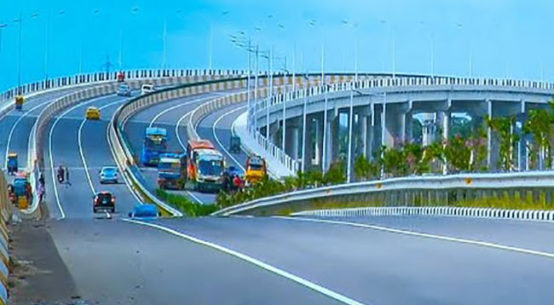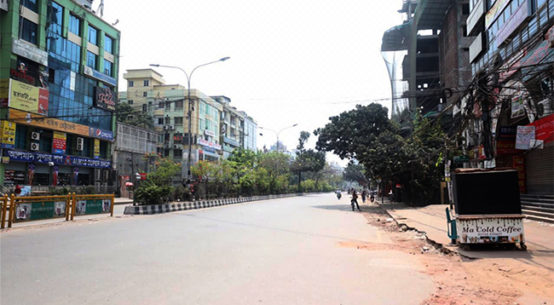The accumulation of assets only fuels a desire for further possession, and the greed for more property, power and pelf violates our conscience. This very nature of those who are called “haves” in the society draws a sharp contrast with those who are “have-nots”.
The recent incident of khas land distribution by the government among most of the pseudo-landless in Nawabganj and Dohar upazilas under the district of Dhaka once again proved that the well-off are always the timeserving expedient while the poor are destined to be deprived.
It was found that the landless and the destitute people who should have been the beneficiaries of the government khas land allocation scheme were utterly ignored. A good number of influential people that posed as landless actually got the land instead.
The government in its policy defines as landless those that do not possess any dwelling or homestead, but live on farming. Besides, the policy states that a family that has some portion of dwelling, but no agricultural land will also be considered landless. Similarly, if anyone owns farm along with dwelling, they are out of the purview of being considered landless.
And here’s the catch. The policy remains on paper only; the actual situation is different to what should have been – the landless would get land and find a roof over their head, and there would be a big smile on their face, but to all’s utter dismay, that did not happen. What has actually translated into reality is that those who have land and do not fall under the category of landless have been blessed with the government allocation of land. A section of land office staff in those two upazilas might have called the shot to select individuals for allocation of khas land, or else former union prishad member, his son, daughter, owners of one- or two-storied buildings, Bangladeshi expatriates living abroad and even journalists could not be picked up as landless only to take away the land aimed for the poor.
As money would have its authority, the pseudo-landless compromised their conscience by spending money on being listed for government land allocation. It has been found that to get exposed as landless, one requires money; the more one has money, the more one is landless, and in the race of landlessness, there are also incumbent and former local government representatives, politicians, businessmen, and the like – all got khas land because they could proved themselves as landless.
But the real landless people have no money, and so they did not get land from the government. This is a very simple math. That is why labourer Hyat Ali in Nawabganj vented his grievance, saying that only those that have money get land, and those that do not have money do not get land. The 60-year-old living from hand to mouth did not get a piece of land even after applying for it.
As landless, former chairman Tofazzal Hossain of Mahmudpur union parishad, his son, daughter, brother, son-in-law and at least 20 of his relatives have been allocated with khas land whereas this so-called landless man has his dwelling on a 70-bigha land.
Whether or not Tofazzal falls under the category of landless, the readers know very well, but the staff members of land office do not. This prevalent malpractice may remind all of us the story of the characters — Upen and Landlord in a Bengali poem. The landlord wanted to get hold of the last resort of Upen – a small piece of land – to enhance the beauty of his garden. Maybe the persons that have got khas land which is destined to go to the real landless people should be requiring a little more land to enhance the beauty of either their garden or home or dwelling.
Another landless individual is Hosain Mridha who is the head of his family and living in the village of Hosainpur. With a little pride, Hosain said all his three sons got khas land from the government though he owns a home and a piece of cultivable land. Thus in these two upazlias, the well-off and those possessing one- or two-storied houses have managed to grab an allocation of khas land. Only a very few poor people were on the government land allocation list to bury any controversy if raised.
Over the last three years, a total of 109 people have been allocated with khas land in Dohar upazila by the land office. Of them, 67 have been found to have their own land and cannot be called landless. The condition of the rest of the others might also be like them if probed. What will the land office say about it? Did the authorities fail to identify the real landless people?
It is good that the government has launched investigation into the issue, and said that if there is any anomaly found, the piece of land allocated to the persons as landless will be revoked. But will there be any action against those responsible for unjust selection of people for khas land? That remains to be seen.
What we see as norm in this society is that the big shots slip through the loopholes of law and hardly face punitive actions whereas all rules are applied to the poor, the day labourers and the farmers who are simple and easy-going and do not understand the complexity of legal issues. This appears to be an established rule that the poor must face the music though they are guiltless and far from committing crimes. If that is not the case, then why arrest warrants would be issued against 37 marginal farmers in Ishwardi? Why then most of them have to remain behind bars even after paying bank loans?
Is it our culture to repress the poor, violate their rights and pamper the rich?
Subrata Kumar Roy is a senior sub-editor at New Age


